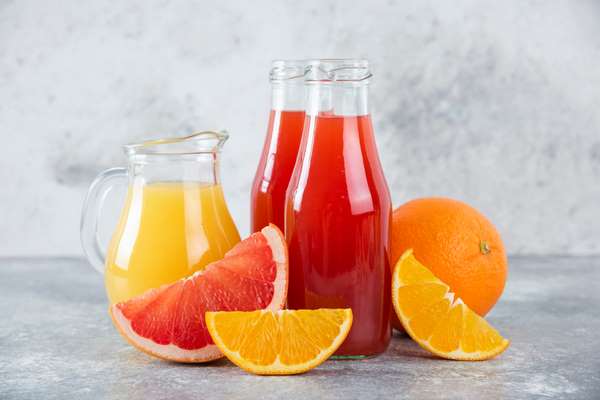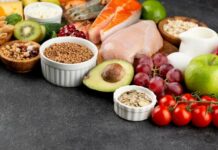- A recent study has shown that even short-term consumption of fresh juice alone can negatively affect the gut and oral microbiome, causing inflammation.
- Juicing usually removes the fibre from fruits and vegetables, which is extremely important for maintaining a healthy microflora and helps to preserve anti-inflammatory bacteria.
- Juice “detoxes” or “cleanses” do not guarantee sustainable weight loss or detoxification, so experts advise to give preference to nutritious foods rich in fibre.”
People often choose a juice cleanse to “flush out toxins” from the body after a period of poor nutrition or to lose weight quickly. However, according to a small study, three days of consuming only freshly juiced fruits and vegetables can cause adverse changes in the bacteria in the gut and mouth. These shifts have been linked to inflammation and cognitive decline.

The study showed that a juice-only regime for three days increased levels of bacteria associated with increased intestinal permeability (often known as leaky gut) and inflammatory responses, raising concerns about the long-term or regular use of such “cleansing” diets.
According to one of the study’s co-authors, Melinda Ring, MD, of Northwestern Medicine, the researchers were particularly surprised by the speed and scale of the changes in the oral microbiome.
How juice cleansing affects the oral and intestinal microbiome
To investigate how juice diets change the microflora of the oral cavity and intestines, the participants in the experiment were people aged 18 to 35 with a BMI (body mass index) of 18.5-30. People who had diseases or were taking medications that could affect general inflammation, blood sugar levels, or the composition of the microbiome were excluded from the study.
A total of 23 participants were selected. For the final microbiome analysis, 14 people (7 women and 7 men) remained. They were divided into three groups, each following one of the three regimens:
-
- Only cold-pressed juice
- Cold-pressed juice + whole foods
- Only whole plant foods (no juice)
Saliva, cheek swabs and stool samples were taken before, during and two weeks after the three-day diet, using genetic sequencing techniques to detect changes in bacteria.
The key results are as follows:
- The juice-only group showed the greatest increase in bacteria associated with inflammation and increased gut permeability.
- The group with a diet consisting exclusively of whole plant foods experienced more favourable microbiome shifts.
- Those who combined juice with whole foods also experienced changes in bacterial composition, but these were less pronounced than in the juice-only group.

How “bad” bacteria in the mouth can increase inflammation
The researchers observed the biggest changes in the oral microbiome – the number of so-called “good” and “bad” microorganisms changed. The analysis showed a decrease in the beneficial Firmicutes bacteria and an increase in Proteobacteria, which are usually associated with inflammatory processes.
For their part, pathogenic bacteria from the oral cavity can enter the intestines, exacerbating flora imbalances and increasing inflammation.
Short-term juice diet: is there a reason to worry?
Although fibre supports a healthy microflora, a three-day juice fast is unlikely to cause serious damage to your overall health, according to nutritionist Jacqueline Daniel (JD) Fryer of the Banner Sports Medicine High Performance Centre in Scottsdale, Arizona.
In her opinion, in certain situations, a juice diet can even be beneficial.
At the same time, the three-day study is too short a period to claim any long-term health effects, she adds.
Why is fibre so important?
The authors of the study emphasise that the lack of fibre in juice diets can lead to microbiome disorders.
After all, juice mostly deprives fruits and vegetables of fibre, an important nutrient for bacteria that produce anti-inflammatory compounds (including butyrate). Without fibre, microorganisms that love simple sugars gain strength. According to scientists, the high sugar content of juices can further feed pathogenic bacteria.
In addition, fibre helps to slow down the digestion and absorption of sugar, restraining sudden fluctuations in blood glucose levels.

How to safely use a juice detox diet
Adding freshly squeezed juice to your diet from time to time is fine, but juice-only diets can lead to fibre deficiency, which leads to an imbalance in the flora and can trigger inflammation.
If the ultimate goal is to lose weight, a juice detox is unlikely to help, says Alyssa Kwan, a doctor at Stanford Health Care (California).
This article is intended for informational purposes only and should not be considered as a substitute for advice provided by qualified medical professionals.






